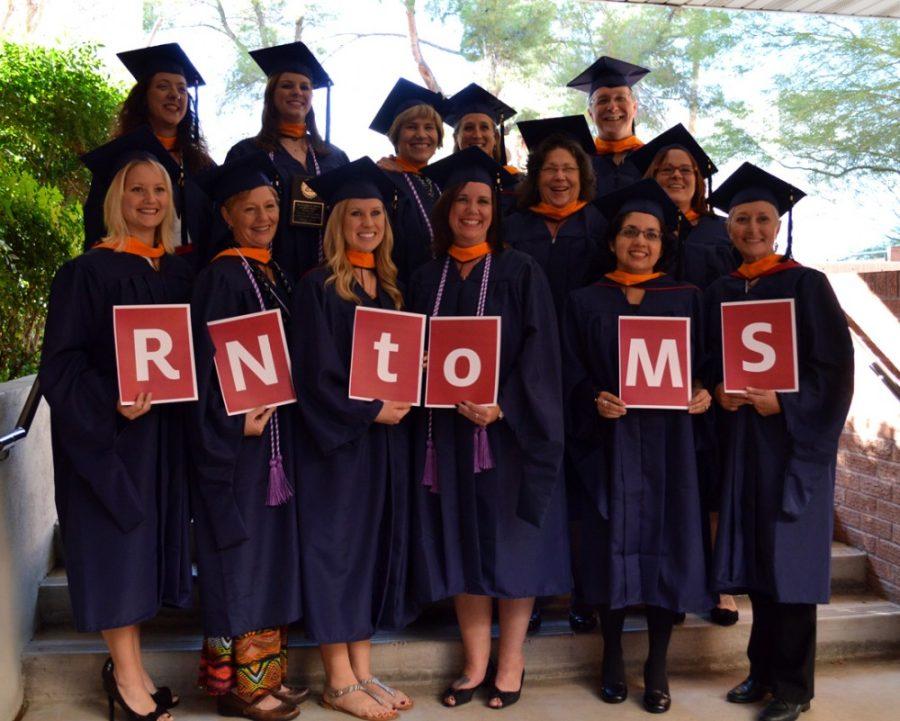The College of Nursing graduated 25 nurses in the inaugural class of the Registered Nurse to Master of Science in Clinical Systems Leadership online program this past December.
The development of the program began in 2010 with the vision of preparing nurses for leadership positions in the changing health care environment through accessible online courses. Through this program, students are prepared for a variety of careers in managerial, administrative and leadership roles in a clinical setting
.
“The RN to MS students learn how to examine their basic nursing preparation and current clinical practice and discover who they can be as leaders in health care, and how they can positively influence health care reform beyond their current nursing practice,” said Cheryl Lacasse, a clinical professor and faculty coordinator for the RN-MS program.
Along with Lacasse, the program is also directed by Ki Moore, a professor and division director of biobehavioral health science. Moore said the program contains two tracks. One track is designed for nurses with an associate degree in nursing and at least two years of work experience. The second track is for nurses with a Bachelor of Science in Nursing and one year of work experience.
The program is unique in its delivery method of eight-week online courses that are flexible for working professionals, Lacasse explained. The program admits students during fall, spring and summer terms and most recently admitted 75 students for the spring session, she said.
Students in the RN-MS program are able to connect through social media outlets and engage in online discussions, electronic presentations and podcasting. The online environment of the program provides a wide range of access for students across the country.
“We have students from across all of the time zones in the United States,” Lacasse said. “It makes it very exciting because all of these students from these different regional perspectives come together, and it is very enriching for the program. The way people approach nursing can be different across the country, so it really makes for wonderful learning.”
The program consists of a 31- to 44-credit curriculum that includes a wide variety of courses in health promotion, healing environments, health care policy and evidence-based practice. At the end of the program, all students take a Clinical Systems in Leadership Immersion course.
“The Clinical Systems Leadership Immersion course is the final course in the program and requires students to apply all of the program content in a comprehensive experience,” Lacasse said. “Students work in small leadership teams to develop a care management plan for a high-risk patient population. They explore critical information for the care of a high-risk clinical population and integrate critical knowledge of pathophysiology, assessment and treatment.”
This experience allows students to use their knowledge, skills and abilities as leaders in order to create clinically relevant care-management plans and have a positive impact on clinical care outcomes, Lacasse said.
Lacasse is both excited and optimistic about the future of the RN-MS program.
“The inaugural class of graduates is an outstanding group of clinicians and leaders in their area of nursing practice,” Lacasse said. “They generously gave faculty valuable feedback that has enriched the program.”
_______________
Follow Kimberlie Wang on Twitter.









